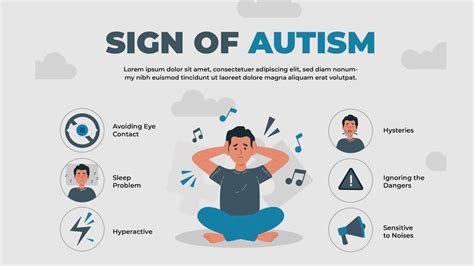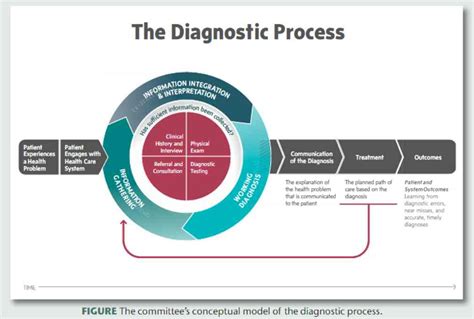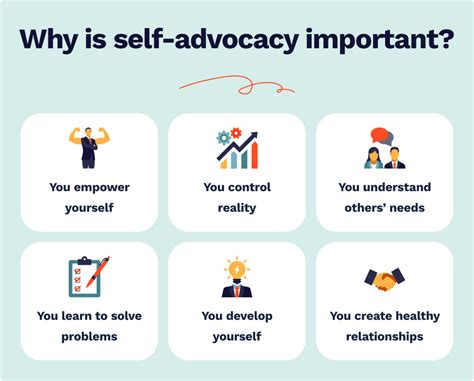Intro
Adults with autism spectrum disorder (ASD) often face unique challenges in their daily lives, from social interactions to employment and personal relationships. Despite these challenges, many adults with autism lead fulfilling and successful lives, and receiving a proper diagnosis can be a crucial step towards understanding and addressing their needs. In recent years, there has been an increasing awareness of autism among adults, and many are seeking diagnosis and support later in life. This trend is largely driven by a growing recognition that autism is not solely a childhood condition, but rather a lifelong neurological difference that can affect individuals of all ages.
The importance of adult autism diagnosis cannot be overstated. A proper diagnosis can provide a sense of clarity and validation, helping individuals understand their strengths, challenges, and behaviors. It can also open up access to support services, accommodations, and resources that can significantly improve their quality of life. Furthermore, a diagnosis can help adults with autism connect with others who share similar experiences, reducing feelings of isolation and loneliness. As the autism community continues to grow and evolve, it is essential to prioritize adult autism diagnosis and provide the necessary support and resources to help individuals thrive.
As the prevalence of autism among adults becomes more widely recognized, researchers and clinicians are working to develop more effective diagnostic tools and strategies. This includes the use of standardized assessments, such as the Autism Diagnostic Observation Schedule (ADOS) and the Autism Diagnostic Interview (ADI), which can help identify autism symptoms and characteristics in adults. Additionally, many clinicians are incorporating more nuanced and personalized approaches to diagnosis, taking into account the unique experiences and perspectives of each individual. By acknowledging the diversity of autism and the complexities of adult diagnosis, we can work towards creating a more inclusive and supportive environment for adults with autism.
Understanding Adult Autism Diagnosis

Adult autism diagnosis typically involves a comprehensive evaluation of an individual's cognitive, social, and behavioral characteristics. This may include a review of their medical and psychological history, as well as observations of their behavior and interactions. Clinicians may also use standardized assessments, such as the ADOS and ADI, to gather more information about an individual's autism symptoms and characteristics. The diagnostic process can be complex and time-consuming, but it is essential for providing an accurate and comprehensive understanding of an individual's needs and strengths.
Benefits of Adult Autism Diagnosis
The benefits of adult autism diagnosis are numerous and significant. A proper diagnosis can provide a sense of clarity and validation, helping individuals understand their strengths, challenges, and behaviors. It can also open up access to support services, accommodations, and resources that can significantly improve their quality of life. Additionally, a diagnosis can help adults with autism connect with others who share similar experiences, reducing feelings of isolation and loneliness. Some of the key benefits of adult autism diagnosis include: * Improved self-awareness and understanding of autism symptoms and characteristics * Access to support services, accommodations, and resources * Increased opportunities for social connection and community engagement * Enhanced employment and educational opportunities * Better mental and physical health outcomesThe Diagnostic Process

The diagnostic process for adult autism typically involves several stages, including an initial screening, a comprehensive evaluation, and a diagnostic assessment. The initial screening may involve a questionnaire or interview to gather information about an individual's symptoms and characteristics. The comprehensive evaluation may include a review of their medical and psychological history, as well as observations of their behavior and interactions. The diagnostic assessment may involve the use of standardized assessments, such as the ADOS and ADI, to gather more information about an individual's autism symptoms and characteristics.
Standardized Assessments
Standardized assessments, such as the ADOS and ADI, are widely used in adult autism diagnosis. These assessments provide a comprehensive evaluation of an individual's cognitive, social, and behavioral characteristics, and can help identify autism symptoms and characteristics. The ADOS, for example, involves a series of observations and interactions designed to assess an individual's social communication and interaction skills. The ADI, on the other hand, involves a detailed interview with an individual's family members or caregivers to gather information about their developmental and behavioral history.Support and Resources

Adults with autism often require ongoing support and resources to thrive. This may include access to mental health services, such as counseling and therapy, as well as support groups and social connections. Many organizations and communities offer specialized services and resources for adults with autism, including employment support, educational accommodations, and recreational activities. Additionally, there are many online resources and forums available, providing a wealth of information and connection opportunities for adults with autism.
Employment and Education
Employment and education are critical aspects of adult life, and individuals with autism often face unique challenges in these areas. Many adults with autism struggle to find and maintain employment, due to difficulties with social interactions, communication, and executive functioning. However, with the right support and accommodations, many adults with autism are able to succeed in their careers and pursue their educational goals. This may involve working with a job coach or vocational counselor, or accessing specialized educational programs and services.Self-Advocacy and Empowerment

Self-advocacy and empowerment are essential for adults with autism, as they work to navigate their daily lives and pursue their goals and dreams. This may involve developing self-awareness and self-acceptance, as well as learning to communicate effectively and assertively. Many adults with autism find it helpful to connect with others who share similar experiences, whether through support groups, online forums, or social connections. By building a sense of community and connection, adults with autism can feel more empowered and confident, and better equipped to navigate the challenges and opportunities of adult life.
Building Resilience
Building resilience is critical for adults with autism, as they face a range of challenges and stressors in their daily lives. This may involve developing coping strategies and stress management techniques, such as mindfulness, exercise, or creative activities. Many adults with autism also find it helpful to prioritize self-care and self-compassion, taking time to rest and recharge when needed. By building resilience and developing a growth mindset, adults with autism can better navigate the ups and downs of life, and pursue their goals and dreams with confidence and determination.Conclusion and Next Steps

In conclusion, adult autism diagnosis is a complex and multifaceted process, involving a comprehensive evaluation of an individual's cognitive, social, and behavioral characteristics. By prioritizing adult autism diagnosis and providing the necessary support and resources, we can help individuals with autism thrive and reach their full potential. Whether you are an adult with autism, a family member or caregiver, or a clinician or support provider, there are many steps you can take to promote awareness, understanding, and inclusion. By working together, we can create a more supportive and empowering environment for adults with autism, and help them build the skills, confidence, and resilience they need to succeed.
What is adult autism diagnosis?
+Adult autism diagnosis refers to the process of evaluating and identifying autism spectrum disorder (ASD) in adults. This process typically involves a comprehensive evaluation of an individual's cognitive, social, and behavioral characteristics, and may involve the use of standardized assessments and diagnostic tools.
What are the benefits of adult autism diagnosis?
+The benefits of adult autism diagnosis include improved self-awareness and understanding of autism symptoms and characteristics, access to support services and resources, increased opportunities for social connection and community engagement, and enhanced employment and educational opportunities.
How can I get diagnosed with autism as an adult?
+To get diagnosed with autism as an adult, you can start by speaking with your primary care physician or a mental health professional. They can refer you to a specialist, such as a psychologist or psychiatrist, who can conduct a comprehensive evaluation and provide a diagnosis. You can also search for autism diagnosis clinics or centers in your area, or contact autism organizations for more information and resources.
We hope this article has provided you with a comprehensive understanding of adult autism diagnosis and its importance. If you have any further questions or would like to share your experiences, please don't hesitate to comment below. You can also share this article with others who may be interested in learning more about adult autism diagnosis. Together, we can work towards creating a more supportive and inclusive environment for adults with autism.
